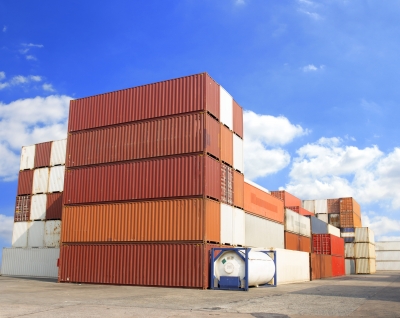 The Bureau of Customs (BOC) has mandated that Philippine imports of meat products carrying a tariff of 10% and below must secure clearance from the Office of the Customs Commissioner prior to their release.
The Bureau of Customs (BOC) has mandated that Philippine imports of meat products carrying a tariff of 10% and below must secure clearance from the Office of the Customs Commissioner prior to their release.
In a memorandum dated March 2, 2016, Customs commissioner Alberto Lina said “no importation of pork, chicken and beef products with a declared Tariff Rate of 10% and below shall be processed or released without Clearance from the Office of the Commissioner.”
Lina also directed all district collectors, deputy collectors, sub-port collectors, principal appraisers and examiners to “observe correct and proper valuation of all importations of pork, chicken and beef products.”
The directive, which took effect immediately, was apparently issued in reaction to complaints by a national alliance of pork producers of rampant smuggling of meat products. The group has long been threatening to stage a “pork holiday” if the government failed to curb smuggling.
In a statement this week, the BOC noted its “unrelenting…effort to combat smuggling in any form.” Along this line, it explained it has come out with various issuances on valuation in a bid to impose uniform reference value on imported poultry, pork, and beef products.
Swine farmers belonging to the national alliance of pork producers, including the Pork Producers Federation of the Philippines Inc., Samahang Industriya ng Agrikultura (Sinag), and National Federation of Hog Farmers Inc., claimed the government has lost P9 billion in revenues from 2010 to mid-2015 because of smuggling or misdeclaration of pork products.
They said tens of millions of kilos of imported pork meat are being misdeclared as pork offal, fats, rind, and skin. These parts fetch a lower tariff rate of 5% to 10% compared to the 40% tariff on pork meat.
The group is calling for the strict enforcement of the quarantine first policy, 100% quarantine test, and inspection at the port of first entry for all meat imports with declared 5% to 10% tariff.
As early as October 2015, the BOC said Lina has already issued a memorandum requiring examination of all shipments in refrigerated container vans in the presence of representatives from Sinag and the Federation of Philippine Industries Inc.
As a complementary measure, the BOC said it will acquire reefer facilities to facilitate inspection of meat products.
Last year, Assessment and Operations deputy commissioner Atty. Agaton Teodoro Uvero said comparisons between BOC import statistics and Department of Agriculture (DA) data showed misdeclaration of agricultural imports arose mainly from the lack of a mechanism for the full examination of refrigerated shipments.
READ: BOC, DA consider inspection of perishables at DA-accredited warehouses
The BOC since last year has also proposed that customs brokers waive their right to bank secrecy in exchange for exemption from the “tedious process” of getting accreditation from the Bureau of Internal Revenue.
READ: Waive bank secrecy in exchange for exemption from BIR clearance, Lina proposes to brokers
171 containers for disposal
Meanwhile, BOC-Manila International Container Port (BOC-MICP) confirmed that 171 containers of abandoned meat products had been approved for disposal since February, following a Senate inquiry on the alleged abandonment of such cargoes inside the Manila terminal.
In a statement, BOC MICP Auction and Cargo Disposal Division (ACDD) chief Gerry Macatangay said the containers are “pending disposal through destruction or condemnation until we get approval from the Philippine Ports Authority (PPA) and International Container Terminal Services, Inc. (ICTSI) to waive the wharfage and storage fees.”
Macatangay noted that of the 171 containers, 147 are consigned to Jcore Enterprises, Lucky Sisters and Lean Pasture that arrived on separate dates between January and June 2015.
“The shipments are contained in refrigerated vans. Normally, shelf life for frozen meat is 6 months up to a year. Regardless, ICTSI will unplug the vans once the shipment has been approved for condemnation to start the disposal process. So, we assure the general public that there is no way any abandoned meat can be resold for consumption,” Macatangay explained.
Under Department of Agriculture Administrative Order No. 09-2010, no confiscated consignment can be auctioned, redeemed, donated or sold by any government bureau or agency.
“We can only confiscate and destroy, return to country of origin or ship to a third country,” Macatangay said.
The bureau said disposal will bear no cost to the government contrary to earlier reports. – Roumina Pablo
Image courtesy of joesive47 at FreeDigitalPhotos.net





